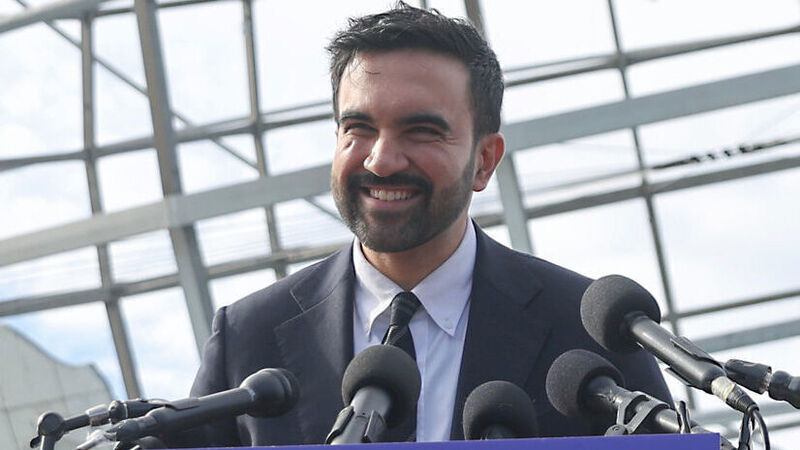Paul Hosford: Zohran Mamdani and Catherine Connolly both won by offering hope to voters

New York City mayor-elect Zohran Mamdani speaking in the borough of Queens the day after his election victory over Andrew Cuomo who ran as an independent after Mamdani defeated him in the Democratic Party primary. Picture: Heather Khalifa/AP
Amid the jubilant scenes as 34-year-old Ugandan immigrant Zohran Mamdani sealed a most unlikely victory to become the mayor of New York City, there was something of a strange sight in RTÉ’s package.















